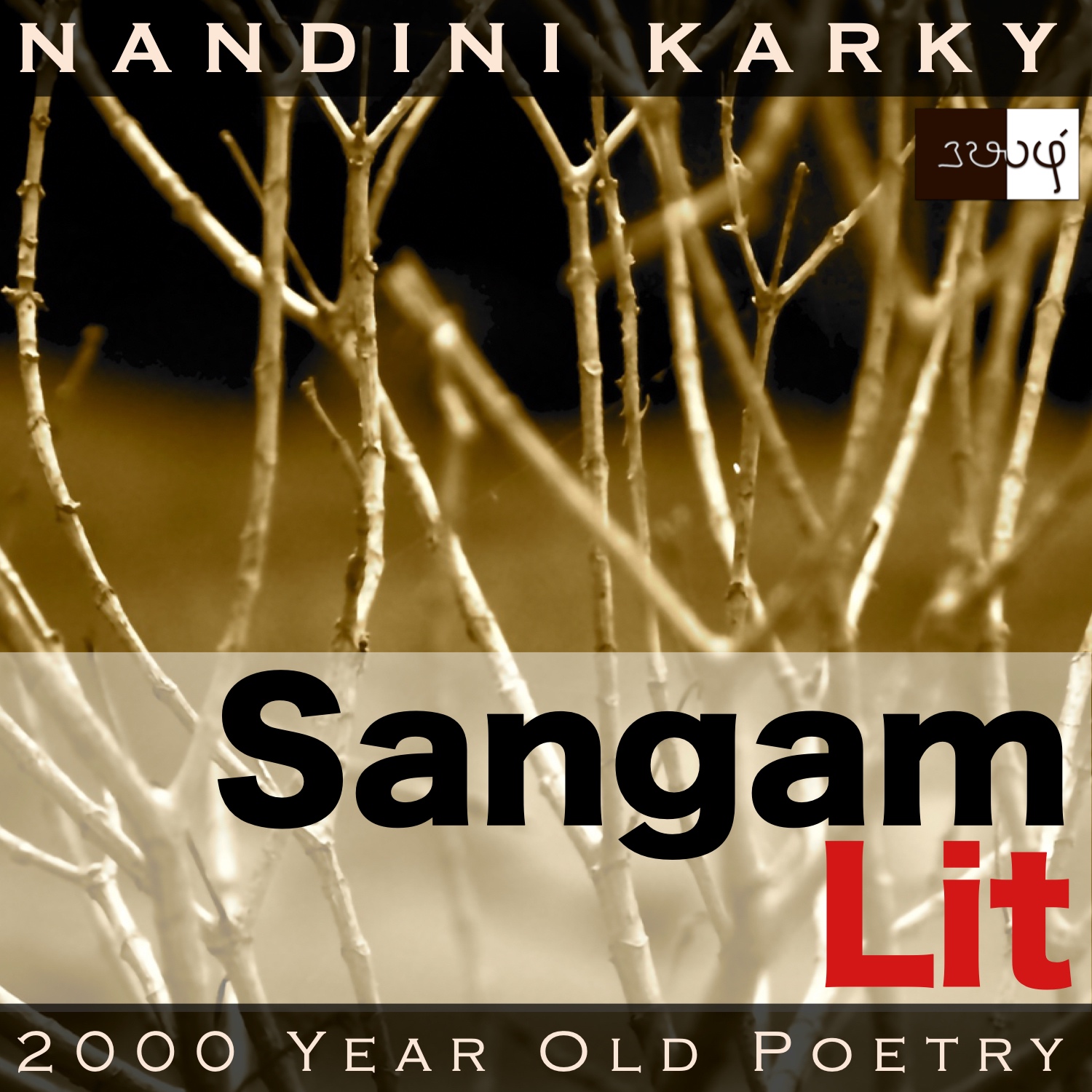Podcast: Play in new window | Download
Subscribe: Apple Podcasts | Spotify | Amazon Music | Android | iHeartRadio | TuneIn | RSS | More

In this episode, we appreciate the foresight of the confidante in predicting the man’s safe return, as depicted in Sangam literary work, Natrinai 164, penned by an anonymous poet. Set in the drylands of ‘Paalai’, the verse speaks in the voice of the confidante to the lady, conveying in a subtle manner, good tidings about the man’s arrival.
”உறை துறந்திருந்த புறவில், தனாது
செங் கதிர்ச் செல்வன் தெறுதலின், மண் பக,
உலகு மிக வருந்தி உயாவுறுகாலைச்
சென்றனர் ஆயினும், நன்று செய்தனர்” எனச்
சொல்லின் தெளிப்பவும், தெளிதல் செல்லாய்-
செங்கோல் வாளிக் கொடு வில் ஆடவர்
வம்ப மாக்கள் உயிர்த் திறம் பெயர்த்தென,
வெங் கடற்று அடை முதல் படு முடை தழீஇ,
உறு பசிக் குறு நரி குறுகல் செல்லாது
மாறு புறக்கொடுக்கும் அத்தம்,
ஊறு இலராகுதல் உள்ளாமாறே.
As the poem opens, we learn a new word for ‘rain’ in ‘உறை’. Like a celebrated son, the sun is given a pure Tamil name ‘செங் கதிர்ச் செல்வன்’ meaning ‘one with red rays’. As if all the elements have assembled in this verse for us, after rain and sun, comes ‘மண்’ meaning ‘earth’. The phrase ‘சொல்லின் தெளிப்பவும், தெளிதல் செல்லாய்’ talks about an intricate quality of the human mind, which even when someone attempts to make a situation clear with their words, will never accept it, until it so decides. The term ‘ஆடவர்’, which in current day, refers to ‘men’ talks about ‘bandits’ here. There’s a ‘குறு நரி’, a ‘small fox’ roaming in these parts and for some reason, it happens to be retreating in haste, like a loser on a battlefield, as illustrated by the phrase ‘மாறு புறக்கொடுக்கும்’. Let’s explore to know more.
The man and lady had been leading a happy, married life when the time came for the man to leave the lady on a mission. Even as her confidante tries to cheer her up, the lady worries about the dangers in the man’s path and pines away. One day, the confidante rushes to her and says, “Although he went away in the season which makes rain abstain from the forest land, at a time when the red-rayed one scorches without respite, making the earth parched, and when the world suffers with incessant worries, I said he has done the right thing. Even when I tried to clarify thus, you attained no clarity whatsoever. In that harsh drylands path, bandits stand with unbent rods and curved bows, and wield arrows at unsuspecting wayfarers, drawing out life from them and then, they leave the corpses in the hot forest which covered with dry leaves, reek with an offensive odour. Even a small fox that comes by, with intense hunger nears not such a corpse and flees in a hasty retreat. You did not consider the strength of your man, who has walked through such a harsh path and emerged unscathed!” With these words, the confidante announces the impending arrival of the man, and brings joy to the lady’s worried heart.
Time to delve into the details! The confidante opens with a dialogue that she had said when the man had started the journey. At that time, she had turned to the lady and told her that yes, your man is leaving in this harsh weather which has made the rain, a hermit, one who avoids the lush forest land as if it were a temptation. With the rain gone, the sun scorches the land all alone and draws out the little moisture within, making the face of earth, parched and broken. Indeed, it’s a time when the world suffers with worries many. But, the confidante added, that it’s the right thing that he’s doing. She recollects how in spite of these words from her, the lady refused to be encouraged about the man’s journey. Let’s pause for a moment and consider why it was the right thing for the man to be travelling under such harsh conditions. This was because, in spite of all the discomforts of summer, travel was better then. From this, we understand that other seasons were not recommended for travel in those ancient times.
Returning to the confidante’s discourse, we find her bringing forth another fear-evoking scene from the drylands. Bandits awaiting wayfarers with bows and arrows; A wayfarer being killed in their hands; The corpse being let to rot without a burial or cremation amidst dry leaves; A fox sniffing around for food and yet retreating away from the corpse, put off by the reek that surrounds. After painting this portrait of the drylands, the confidante says to the lady that you did not believe the words I said when he started the journey but here he comes, not a bit affected by these dangers I mentioned. The description of that drylands scene is also a metaphor for how the disease of pining, which came sniffing for the lady hearing that the man was away, will now skulk away like that fox, as the man returns to fill the lady with health and happiness. In a nutshell, this is a verse where the confidante jubilantly says to the lady in melodious verse, the modern expression we often say to our own friends – ‘I told you so!’




Share your thoughts...